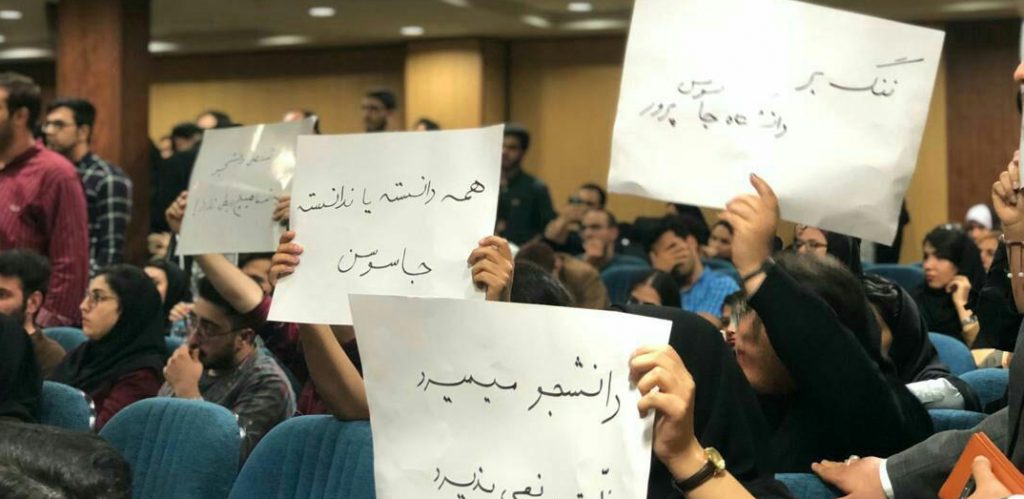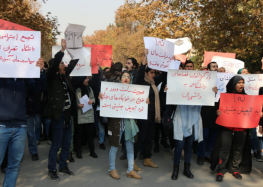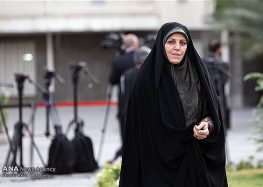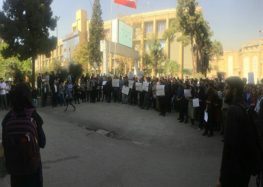Rouhani Official Met With Students Protesting Law That Criminalizes Social Media Activities

An adviser to President Hassan Rouhani was met with protesters at Allameh Tabataba’i University in Tehran on May 1, 2019, where she had gone to hand out the government’s first Award for Citizens Rights.
The students were protesting a new law that enables university authorities to punish students for their peaceful online activities.
A photo published by the state-funded Islamic Republic News Agency (IRNA) shows a group of demonstrators holding up banners with one reading, “Shame on universities that breed spies” and another, “Students would rather die than be humiliated.”
On April 21, 2019, the Committee for the Islamization of Universities, under Iran’s Supreme Cultural Revolution Council, approved an amendment to the academic disciplinary regulations law that enables the authorities to take action against students for online actions including posting photos of parties on social media networks.
“Publishing unethical photos or committing immoral acts in cyberspace and on information-sharing networks will result in disciplinary action against students,” said Jamasb Nozari, director of the state-run Academic Affairs Organization.
According to IRNA’s report on the May 1 protest, security agents removed some of the protesters from the hall where the award ceremony was taking place after the agents got into a verbal altercation with the organizers.
“Some of the protesting students told our reporter that defending citizens’ rights has remained at the level of a slogan and the crackdown on students had not stopped under Rouhani’s government,” reported IRNA.
In December 2016, President Rouhani unveiled a Citizens’ Rights Charter that activists have criticized for its lack of implementation and enforcement mechanisms.
Following widespread public criticism of the university law amendment, Ebrahim Kalantari, a member of the Committee for the Islamization of Universities, insisted that the new regulations only concern posts on academic pages.
“Interference in students activities on their personal social media pages is not the business of universities,” he said on April 27. “That would violate their privacy and the Constitution.”
“Therefore, this has nothing to do with students activities outside academic cyber spaces and it only covers students engaged on academic sites and channels,” he added.
However, that day the Ministry of Science, Research and Technology issued a statement declaring that the “new” regulations are not new at all.
“There is no particular change in regards to social media since the university disciplinary councils have had the authority to act against students based on private complaints against flagrant violations on social media,” said the statement. “So this is nothing new.”




